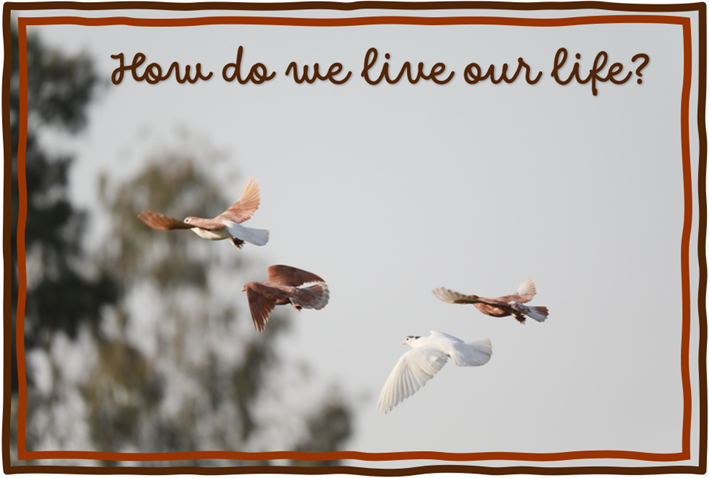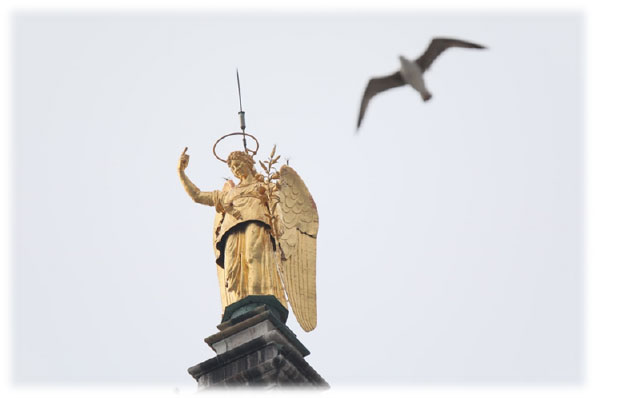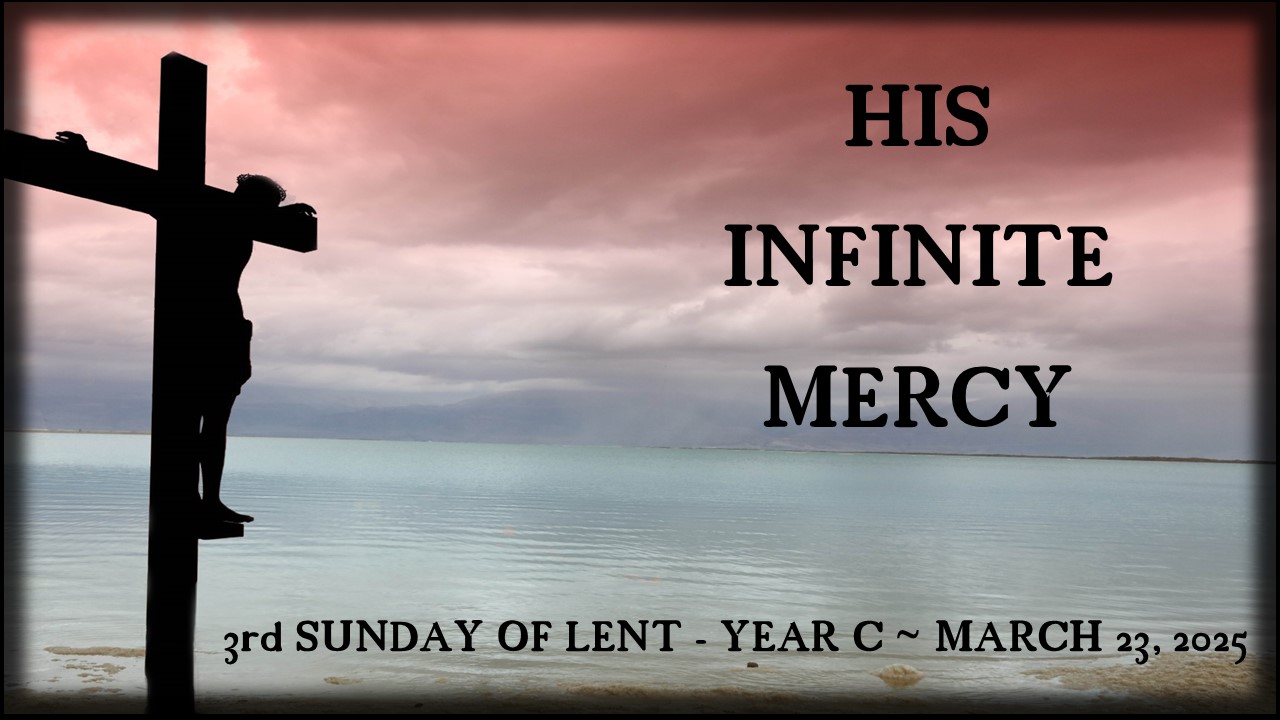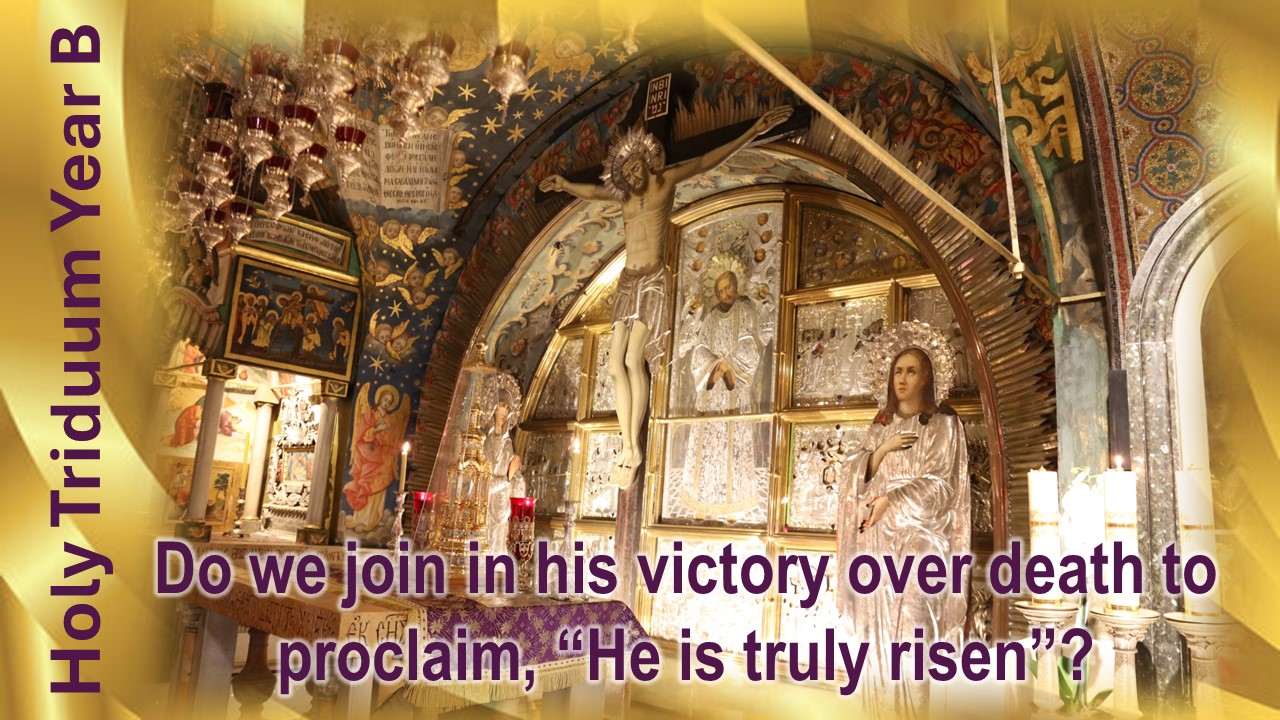
6th Sunday in Ordinary Time Year A ~ February 12, 2023
Our Choices in Faith
How do we live our life? This is a very common and simple question but has very deep importance for us. This question keeps reminding us about our choices and priorities in our life. We feel happy when we make the right choices because they put us on the right track to achieve success and dreams in our lives. However, if we fail then every day is a struggle for us. God has and will give us chances to choose what is best for us to live life pleasing to him. In the beginning when God made the universe and human beings, he gave them the choice to decide what is best for them. But when they failed, they had to leave the Garden of Eden. In the Book of Deuteronomy, we read that God gave the choice to Israel to choose (please read 30:9-20). However sometimes we act like the people in the following story, avoiding choosing the right action.
This is a story about four people named: Everybody, Somebody, Anybody, and Nobody. There was an important job to be done and Everybody was sure that Somebody would do it. Anybody could have done it, but Nobody did it. Somebody got angry about that, because it was Everybody‘s job. Everybody thought Anybody could do it, but Nobody realized that Everybody would not do it. It ended up that Everybody blamed Somebody when Nobody did what Anybody could have done. Who are you? Everybody? Somebody? Anybody? Or Nobody? What do we choose and how do we choose are questions we need to ask ourselves this week?
Here is a beautiful passage from the pastoral constitution on the Church in the modern world of the Second Vatican Council to remind us about our activities in the faith.
“The activity of man, as it has its origin in man, has man also as its end. Man through his work not only introduces change into things and into society; he also perfects himself. He learns a great deal; he develops his powers; he advances above and beyond himself. This kind of gain, properly understood, is more valuable than any external possession. Man’s worth is greater because of what he is than because of what he has. In the same way, all that men do to secure greater justice, more widespread brotherhood and a more humane structure of social relationships has more value than advance in technology. Technological development may provide the raw material for human progress, but of itself it is totally unable to bring it into being. The criterion, therefore, for assessing man’s activity is this: does it, in accordance with God’s plan, fit in with the true good of the human race and allow man, individually and corporately, to develop and fulfill his vocation in its entirety?
Many of our contemporaries, however, seem to be afraid that a closer relationship between religion and man’s activity will injure the autonomy of men or societies or the different sciences. If by the autonomy of earthly realities, we mean that created things and even societies have their own distinctive laws and values, which must be gradually identified, used and regulated by men, this kind of autonomy is rightly demanded. Not only is it insisted on by modern man, it is also in harmony with the design of the Creator. By the very fact of creation everything is provided with its own stability, its own truth and goodness, its own laws and orderly functioning. Man must respect these, acknowledging the methods proper to each science or art.
One should therefore deplore certain attitudes of mind which are sometimes found even among Christians because of a failure to recognize the legitimate autonomy of science. These mental attitudes have given rise to conflict and controversy and led many to assume that faith and science are mutually opposed. If, on the other hand, the autonomy of the temporal order is understood to mean that created things do not depend on God, and that man may use them without reference to the Creator, all who believe in God will realize how false is this teaching. For creation without the Creator fades into nothingness”.
This week as we continue to reflect on the Sacred Scripture, the First Reading from the Book of Sirach (which was the book of the church in the early Christianity era for the newly converts to read to mend their lives, is also known as Ecclesiasticus), is posing four choices before us: water and fire, life, and death. The Lord has left it to us to choose what we like. If we choose the right things, we are going to live in eternity and will be like him who took our humanity to share his divinity with us. If we still remember the Gospel of the 2nd Sunday, we were invited to reflect and meditate on 9 beatitudes which were divided into two parts: first was about the joy and happiness we will find in the Lord and last were with the reward we are going to receive if live our lives according to the teaching of the Lord. Last Sunday’s Gospel was where we were compared with the salt and light which was meant that everyone should feel us like salt and light is felt. Again, the message is how and what do we choose to show our discipleship to the world?
St. Ephrem once wrote; “Lord, who can comprehend even one of your words? We lose more of it than we grasp, like those who drink from a living spring. For God’s word offers different facets according to the capacity of the listener, and the Lord has portrayed his message in many colors, so that whoever gazes upon it can see in it what suits him. Within it he has buried many treasures, so that each of us might grow rich in seeking them out. The word of God is a tree of life that offers us blessed fruit from each of its branches. It is like that rock, which was struck open in the wilderness, from which all were offered spiritual drink. As the Apostle says: They ate spiritual food, and they drank spiritual drinks. And so, whenever anyone discovers some part of the treasure, he should not think that he has exhausted God’s word. Instead, he should feel that this is all that he was able to find of the wealth contained in it. Nor should he say that the word is weak and sterile or look down on it simply because this portion was all that he happened to find. But precisely because he could not capture it all he should give thanks for its riches”.
He continues to write to remind all of us to “be glad then that you are overwhelmed, and do not be saddened because he has overcome you. A thirsty man is happy when he is drinking, and he is not depressed because he cannot exhaust the spring. So let this spring quench your thirst, and not your thirst the spring. For if you can satisfy your thirst without exhausting the spring, then when you thirst again you can drink from it once more; but if when your thirst is sated the spring is also dried up, then your victory would turn to your own harm. Be thankful then for what you have received, and do not be saddened at all that such an abundance remains. What you have received and attained is your present share, while what is left will be your heritage. For what you could not take at one time because of your weakness, you will be able to grasp at another if you only persevere. So do not foolishly try to drain in one draught what cannot be consumed all at once, and do not cease out of faintheartedness from what you will be able to absorb as time goes on”.
Today’s Gospel presents us with another passage of the Sermon on the Mount, which we find in the Gospel of Matthew. In this passage, Jesus wants to help his listeners to reread the Mosaic law. What had been said in the ancient covenant was true, but that was not all: Jesus came to bring to fulfilment and to promulgate in a definitive way the Law of God. He manifests its original aims and fulfils its authentic aspects, and he does all this through his preaching and, even more, with the offering of himself on the Cross. In this way, Jesus teaches how to fully carry out God’s will, and he uses these words: with a ‘righteousness’ that ‘exceeds’ that of the scribes and the Pharisees. A righteousness enlivened by love, charity, mercy, and hence capable of fulfilling the substance of the commandments, avoiding the risk of formalism.
In today’s Gospel, Jesus examines three aspects, three commandments that refer to murder, adultery and swearing. Regarding the commandment ‘you shall not kill’, he states that it is violated not only by murder in effect, but also by those behaviors that offend the dignity of the human person, including insulting words. Of course, these insulting words do not have the same gravity and culpability as killing, but they are set along the same line, because they are the pretext to it, and they reveal the same wickedness. Jesus invites us not to establish a ranking of offences, but to consider all of them damaging, since they are driven by the intent to do harm to one’s neighbor. Jesus gives an example. Insulting: we are accustomed to insulting; it is like saying “good morning”. And that is on the same line as killing. One who insults his brother, in his heart kills his brother. Please do not insult! We do not gain anything.
Another fulfilment is generated by the matrimonial law. Adultery was considered a violation of man’s property right over the woman. Instead, Jesus goes to the root of the evil. As one comes to killing through injuries, offences, and insults, in this way one reaches adultery through covetous intentions regarding a woman other than one’s own wife. Adultery, like theft, corruption and all the other sins, are first conceived in the depth of our being and, once the wrong choice is made in the heart, it is carried out in concrete behavior. Jesus says: one who looks with a covetous spirit at a woman who is not his own is an adulterer in his heart, has set off on the path towards adultery. Let us think a little bit about this: about the wicked thoughts that go along this line.
Jesus then tells his disciples not to swear, as swearing is a sign of the insecurity and duplicity with which human relationships unfold. God’s authority is exploited to guarantee our human narrative. Instead, we are called to establish among ourselves, in our families and in our communities, a climate of clarity and mutual trust, so that we can be considered sincere without resorting to great tactics to be believed. Mistrust and mutual suspicion always threaten peace!
What are we going to choose this week? How to see the right perspective of our faith and life? The following fable will help us to understand.
A Lion and a Man chanced to travel in a company through the forest. They soon began to quarrel, for each of them boasted that he and his kind were far superior to the other both in strength and mind.
Now they reached a clearing in the forest and there stood a statue. It was a representation of Heracles in the act of tearing the jaws of the Nemean Lion.
“See,” said the man, “that’s how strong we are! The King of Beasts is like wax in our hands!”
“Ha!” laughed the Lion, “a Man made that statue. It would have been quite a different scene had a Lion made it!”
Other Sermons In This Series

He Protects Us | November 14, 2021
November 14, 0201

3rd SUNDAY OF LENT – YEAR C ~ MARCH 23, 2025
March 20, 2025

Holy Triduum – Year B ~ March 28-31, 2024
March 22, 2024

